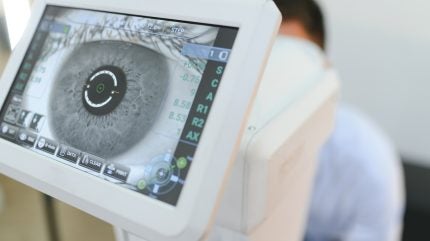

SpliceBio has closed a Series B financing round, raising $135m for the clinical development of SB-007, its gene therapy candidate for Stargardt disease.
Jointly led by Sanofi Ventures and EQT Life Sciences, the funding round also saw participation from Roche Venture Fund and current investors including Novartis Venture Fund, UCB Ventures, New Enterprise Associates and Ysios Capital.

Discover B2B Marketing That Performs
Combine business intelligence and editorial excellence to reach engaged professionals across 36 leading media platforms.
The Series B financing will support the ongoing interventional Phase I/II ASTRA trial and the observational POLARIS study of SB-007.
The funds will expedite the development of SpliceBio’s AAV gene therapy programme pipeline across fields including neurology, ophthalmology and other undisclosed indications, leveraging the company’s protein splicing platform.
Stargardt disease is a genetic retinal condition that occurs due to mutations in the ATP-binding cassette subfamily A member 4 (ABCA4) gene, resulting in progressive loss of vision and eventual blindness.
SB-007 has received clearance from the Food and Drug Administration (FDA) and the UK Medicines and Healthcare products Regulatory Agency (MHRA) to enter clinical development.

US Tariffs are shifting - will you react or anticipate?
Don’t let policy changes catch you off guard. Stay proactive with real-time data and expert analysis.
By GlobalDataIt aims to deliver a functional copy of the full-length ABCA4 protein, potentially treating individuals with Stargardt disease, irrespective of their specific ABCA4 mutation.
Three new members will join the company’s board of directors: EQT Life Sciences managing director Daniela Begolo, Sanofi Ventures partner Laia Crespo and Roche Venture Fund head Carole Nuechterlein.
SpliceBio co-founder and CEO Miquel Vila-Perelló stated: “This financing marks a pivotal milestone for SpliceBio as we advance the clinical development of SB-007 for Stargardt disease and continue to expand our pipeline across ophthalmology, neurology and beyond.
“The support from such high-quality investors underscores the strength of our programmes and our unique protein splicing platform and its potential to unlock gene therapies for diseases that remain untreatable today.”
In 2023, SpliceBio signed a licensing agreement with Spark Therapeutics, allowing the latter to use its protein splicing platform and develop a gene therapy for an undisclosed inherited renal disease.
Cell & Gene Therapy coverage on Pharmaceutical Technology is supported by Cytiva.
Editorial content is independently produced and follows the highest standards of journalistic integrity. Topic sponsors are not involved in the creation of editorial content.




